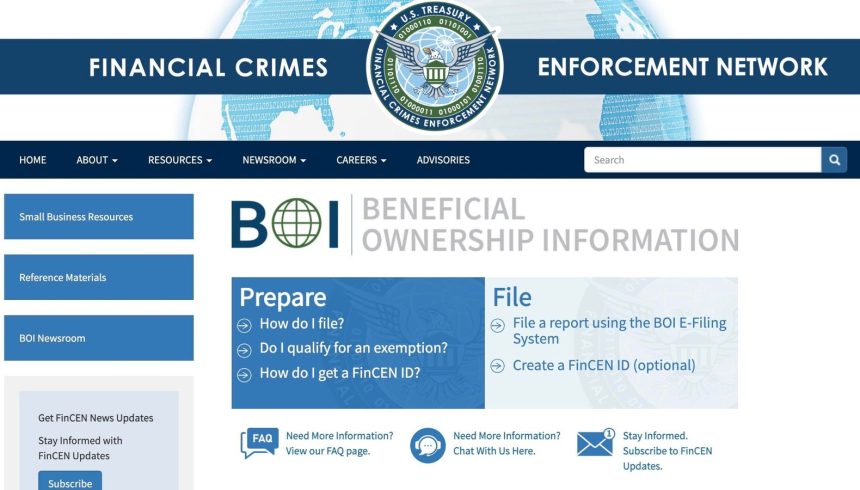The Corporate Transparency Act (CTA), enacted as part of the Anti-Money Laundering Act of 2020, aims to combat money laundering and terrorist financing by requiring businesses to disclose their beneficial owners – the individuals who ultimately own or control the company. This seemingly straightforward requirement has been embroiled in legal challenges, creating uncertainty for business owners regarding their reporting obligations. Initially, the CTA mandated beneficial ownership information reporting (BOIR), but a December 3, 2024, injunction from the District Court for the Eastern District of Texas temporarily halted enforcement. Subsequent court rulings, including a stay issued by a three-judge panel of the Fifth Circuit Court of Appeals and a reversal of that stay by the full Fifth Circuit Court, have further complicated the situation, leaving businesses in a state of limbo. As of the latest developments, businesses are not currently required to file BOIRs and are not penalized for non-compliance.
The CTA’s core objective is to enhance transparency in business ownership, making it more difficult for illicit actors to utilize shell companies and other opaque structures for money laundering and other financial crimes. By requiring disclosure of beneficial owners, the CTA seeks to peel back layers of anonymity and provide law enforcement with crucial information to track and disrupt illegal financial activities. This increased transparency aims to deter criminals from exploiting the financial system while protecting legitimate businesses. The information collected through BOIRs would be accessible to law enforcement agencies, facilitating investigations and potentially preventing future criminal activity.
The legal battles surrounding the CTA have centered on challenges to its constitutionality and implementation. Opponents have raised concerns about privacy violations, arguing that the disclosure requirements infringe on individuals’ rights. The ongoing litigation has resulted in a fluctuating landscape of reporting obligations, leaving businesses uncertain about whether and when they need to comply. The initial injunction granted by the Texas District Court provided temporary relief from compliance, but the subsequent appeals and reversals have created a confusing and unpredictable situation. The Department of the Treasury, responsible for implementing the CTA, has acknowledged the legal uncertainty and advised businesses that they are not currently required to file BOIRs.
Despite the legal uncertainty, the process of filing a BOIR is relatively straightforward. The Financial Crimes Enforcement Network (FinCEN) has established a free online platform, the BOI E-Filing System, to facilitate reporting. The information required for the report includes basic details about the business, such as its legal name, address, and tax identification number. Additionally, information about each beneficial owner is required, including their full name, date of birth, address, and a valid identification number. The online system is designed to be user-friendly and accessible, minimizing the burden on businesses should the reporting requirements become enforceable again.
The ongoing legal challenges surrounding the CTA have created a dilemma for business owners. While currently not required to file BOIRs, businesses face the possibility that the reporting obligations may be reinstated if the legal challenges are unsuccessful. This uncertainty creates a difficult decision for business owners: whether to proactively file the report now or wait for a final legal resolution. Filing the report now ensures compliance should the requirements become enforceable, eliminating the need to continuously monitor the legal developments. Conversely, waiting for a final legal resolution avoids unnecessary effort if the reporting requirements are permanently overturned.
Ultimately, the decision of whether to file a BOIR rests with each individual business owner, weighing the potential benefits of early compliance against the uncertainty of the legal landscape. Proactive filing ensures preparedness for any future enforcement of the CTA, while waiting allows for a potential avoidance of unnecessary administrative burden. While the FinCEN website currently states that businesses are not required to file and will not face penalties for non-compliance, the legal challenges continue, and the situation may change. Staying informed about the legal developments and understanding the potential implications of both filing and not filing is crucial for business owners navigating this uncertain regulatory environment.



